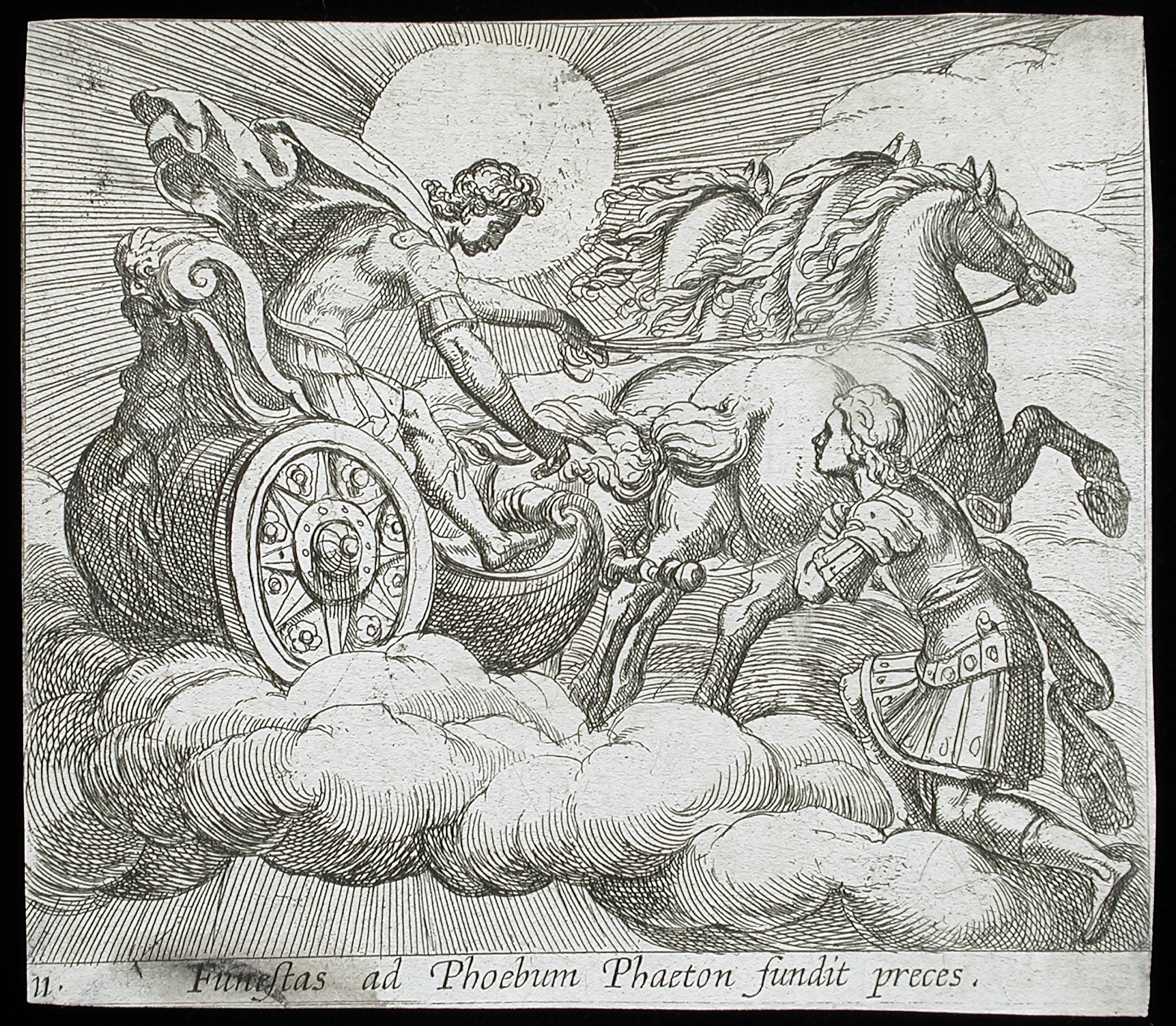(Phaeton Before Apollo, illustrated by Wilhelm Janson and Antonio Tempesta (1555-1630), taken from Wikimedia Commons)
Numerous instances of gods enacting human ruin through the fantastical circumstances of the divine: Zeus' infidelity, the tragedy of Apollo's family, the flooding of the world.
Yet the gods also had potential for kindness despite their flaws and not all outcomes were without gain: examples include Callisto becoming a constellation together with her son Argas, the rebirth of a more resilient human race from Earth's rocks, and Zeus saving an infant Dionysus from a fiery death.
Implement all of these stories, showing the frightening power of gods so susceptible to flaw, yet show the ability of humans to learn from them. Perhaps a storyteller frame device from another time?
Mourning Phaeton, his sisters turn to poplar trees before their mother's eyes because the severity of Phaeton's death caused them to stay still mourning for so long.
Phoebus (Apollo) blots out the sun due to his rage at Zeus, the other gods, and his own steeds for the death of his son Phaeton. The land is also razed by endless flames caused by Phaeton's inability to control the chariot. Use this as some kind of situation to spring off the story?
What is Zeus thinking during the flooding of the world and when he witnesses Deucalion and Pyrrha speaking to Themis for advice on how to repair the damage done to the human race? Zeus POV take on the tale of Deucalion and Pyrrha?
Io was forced into sexual intercourse by Zeus, turned into a cow to hide his affair, and was subject to a cycle of jealousy by Zeus' wife Juno. She's worshiped as a goddess later in life, and gives birth to a son named Epaphus, believed to be of Zeus' blood. If Zeus were the father, did she tell Epaphus of him? How did her ordeal with the gods overall affect her, considering the conga line of suffering she walked?
Bibliography
Ovid's Metamorphoses, Reading A in Books 1-4 , Translated into English by Tony Kline

No comments:
Post a Comment